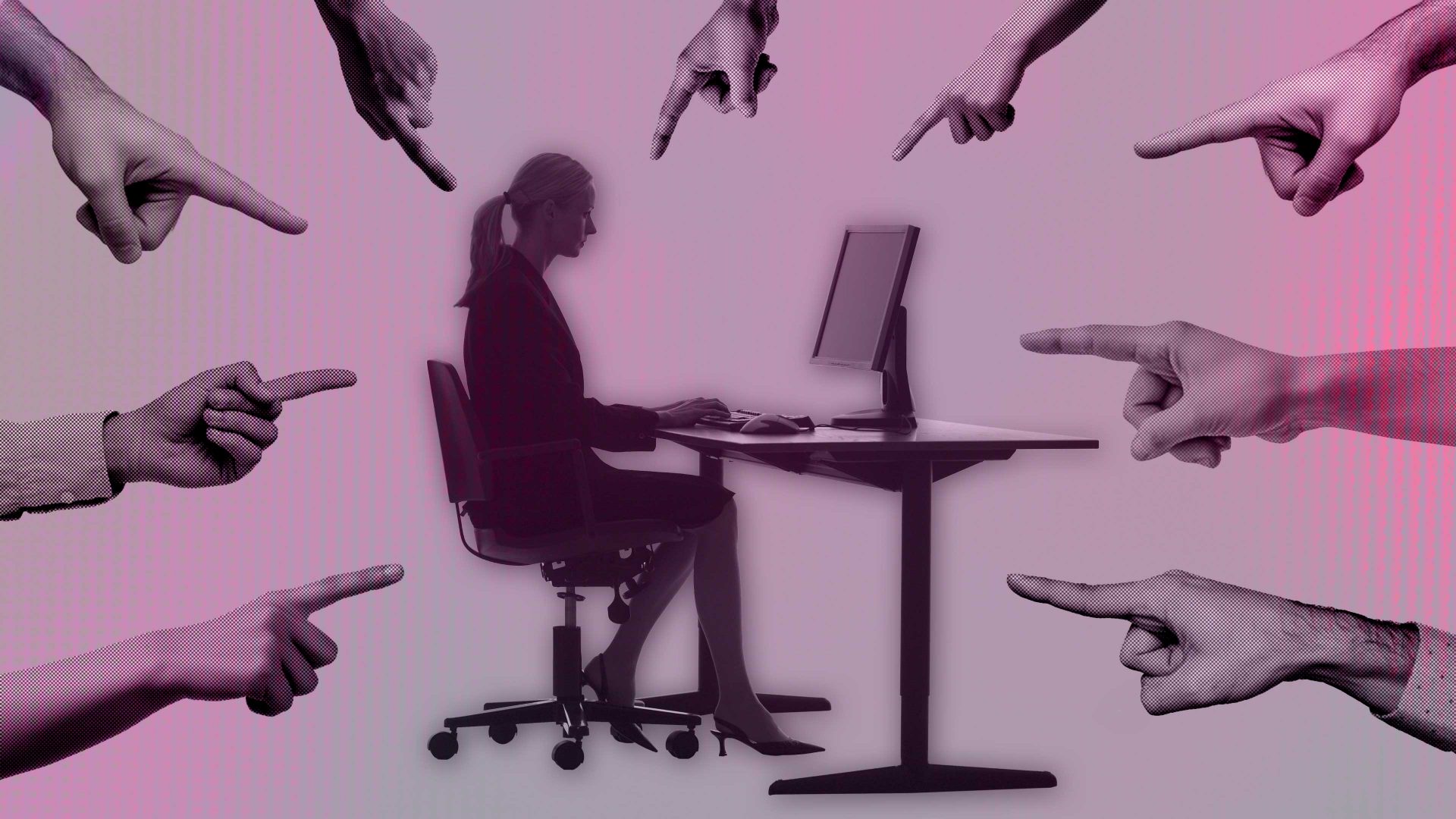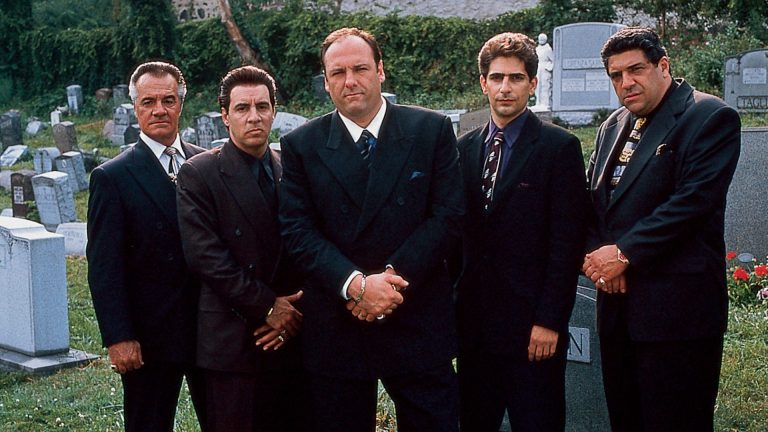Nicola Ratcliffe found herself pushed out of a successful sales career after she had children. Her response to this setback was to put her bad experience to good use. She set up a consultancy that trained workers who also had caring responsibilities and were trying to hold onto their careers while suffering from, among other things, sleep deprivation. Ratcliffe thrived. But as a female entrepreneur, she also became exposed to the constant, unsolicited attention of abusive men.
The most egregious example came when a prospective client booked an unexpected meeting in her diary. “I remember thinking I wasn’t sure who it was, as it wasn’t a brand I recognised, but then when you’re new to an industry you’re not really sure,” she says.
So Ratcliffe joined the video conference call, and found herself presented with a man’s genitals on screen. “I wasn’t sure what to do,” she says. “I just shut the screen down, but I wish I’d kept it open and said something or recorded it. I considered ringing the police but then thought, what will they do?”
“It knocked me. You’ve got to have a certain amount of resilience to bounce back from things like that, because it’s degrading. It’s an intrusion.”
The experience changed the way Ratcliffe does business. “I just make sure I put things in place where I’m in complete control. I can’t leave a meeting open, or ask a group online to meet me in a room,” she says. “I lost a good potential client off the back of that: a man had booked a meeting and I couldn’t work out exactly where he was from [from his online profile] and I just didn’t turn up to it. It turned out he was legitimate and it made me look flighty. But I refuse to get myself into that situation again.”
The barriers to women entering the world of entrepreneurship are well understood. Only 2-4% of venture capital funding goes to female applicants. This pattern is deeply entrenched. Research shows that even when investors are female, women are more likely to be asked about the risk of failure, while men are asked to expand on the potential for success. When women take big risks they are labelled irresponsible or unrealistic, yet when men do the same they are described as brave or ambitious.
This sexist dynamic has a more sinister side. A lobby group of British tech founders reported to the UK government’s inquiry into sexism in business that the overwhelming majority of women – 89% – had experienced sexual harassment or assault during fundraising. Reports of physical abuse, right up to rape, are common.
A 2024 poll by Code First Girls reported that 40% of female entrepreneurs encountered discrimination when they took on leadership roles. This included lewd comments, requests for sexual favours and online abuse.
This isn’t just a UK phenomenon. Research focusing on Japan, published this summer in the Journal of Business Venturing Insights, showed that “sexual harassment continues to hinder both individual success and broader economic innovation”. More than half (52%) of the female entrepreneurs involved in that study reported being victims of sexual harassment by everyone from investors (the primary perpetrators, making up 43% of cases) and mentors to customers and even members of business support groups.
Ute Stephan, professor of entrepreneurship at Kings College London, has interviewed hundreds of women for her research. “We hear very similar stories, and even worse, including up to rape,” she says. “It’s harrowing. A lot of us thought that in the 21st century these things wouldn’t happen any longer.”
“The people who talk to us are going to be selective,” she explains. “If you really struggle with trauma about this, you won’t be sharing it. There is a lot more sexual harassment going on, but people are just not talking about it for fear of retribution.”
Lea Turner, founder of the HoLT small business community, first became visible on LinkedIn when she launched a marketing company. In six months she went from claiming benefits to a six-figure income.
Suggested Reading


Apparently I have ruined the workplace
At first the abuse was an irritant. “On my first viral post, a man asked me what my favourite position was. I responded ‘CEO’, and blocked him,” she laughs. But it got worse. Men were posting from their business accounts, asking whether she was a sex worker and if she would accept gifts in return for sex.
Then came the outright aggression. In response to her success, a group of men in the same sector set up a group chat which they shared with her clients. “It was abusive, critical and demeaning,” she said, “saying things like ‘she’s only popular because of her tits’.” One man, based in New York, began sending drunken abusive messages and voicemails, including death threats. “He said, ‘I know you live on your own and I know where you live’, and sent me a picture of a woman screaming.” Police in the UK and the US located the man and he was found not to have been a serious threat. But this behaviour leaves its mark – on women, and on the economy.
Women know how exposed they are. They know they are unable to build their businesses freely. They are self-censoring their marketing and refusing meetings they feel may be dangerous. Many abandon attempts at entrepreneurship altogether. As Turner puts it: “You spend your whole life trying to be more confident, because we’ve always been told ‘be less’, but every time you get one of those messages it sets you back a few steps and it takes a while to get back on track.”
For women running their own business, the problem is that they must be visible, and that visibility leaves them relatively unprotected from abuse. Without the support of a corporate structure, there is no system of complaint. Most cases of abuse and harassment will be too minor to involve the police – but they are exhausting, relentless and personally damaging.
There is no evidence to suggest that male entrepreneurs are more likely to be abusers. And yet, it is worth noting that there is clear evidence connecting the narcissistic personality type to entrepreneurial success. This brings traits including an affinity for risk taking and illicit behaviour – the kind of men willing to risk their professional reputations.
Much of the harassment women face is digital, and the disinhibition effect of online spaces no doubt plays a part, making attacks or approaches that would be unthinkable in a face-to-face environment seem meaningless. In that sense, the problem is not unique; it is one every woman faces at some point in their working lives.
Given female entrepreneurs also exhibit that risk-taking behaviour, it’s more likely that they are willing to speak up about what is happening – to journalists, to university researchers, and to one another – despite knowing the potential impact on their careers. They have an appetite for that risk; the benefit of being open about what others continue to ignore is worth it for them.
So could anything fix this situation? Sexual harassment and abuse is endemic. Here in the UK, the government has set up a large dedicated unit to focus specifically on the problem of violence against women and girls, but many policy levers seem weak against growing culture of misogyny and pure rage at women living visibly in public and online – as a successful entrepreneur must – makes daily life so intolerable.
On an international scale, the abuse of women in business has huge implications for productivity and for growth. In an economy like ours, which is desperate for green shoots, repressing or discouraging half of the workforce is highly counterproductive. “We are not getting the growth we want, and it’s also making the business world less inclusive,” says professor Stephan of KCL.
“These lost opportunities mean that we’re certainly leaving billions in economic value on the table – ideas that were never realised, companies that were never launched, potential that was left unfulfilled – all because of gender,” says Josie Cox, author of Women Money Power. “That’s a cost that we’re all carrying; not just women. When women thrive economically, everyone thrives economically.”
So could anything fix this situation? Here in the UK, the government has set up a unit to focus on the problem, but policy levers seem weak against the growing culture of misogyny and rage directed at successful, visible women.
Cox hopes that support can help. “Many women have told me about the power of mentorship and creating support networks of people they can trust and who are prepared to champion and advocate for them. Having a powerful mentor, male or female, can be invaluable,” she says.
Each woman who succeeds, despite the risk of abuse, is breaking down the stereotype that women are not entrepreneurs. “Every one of those female founders is helping to create a new norm,” says Cox. “With time, it will dismantle the ludicrous barriers that so many women still face.”











